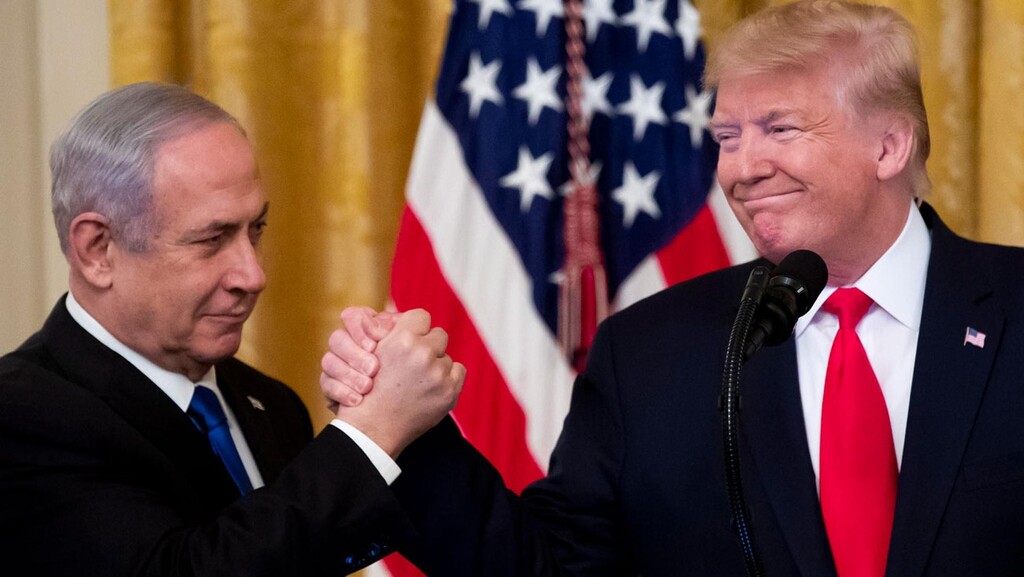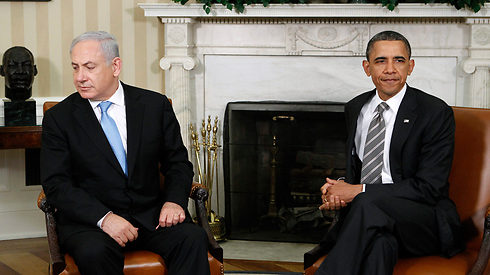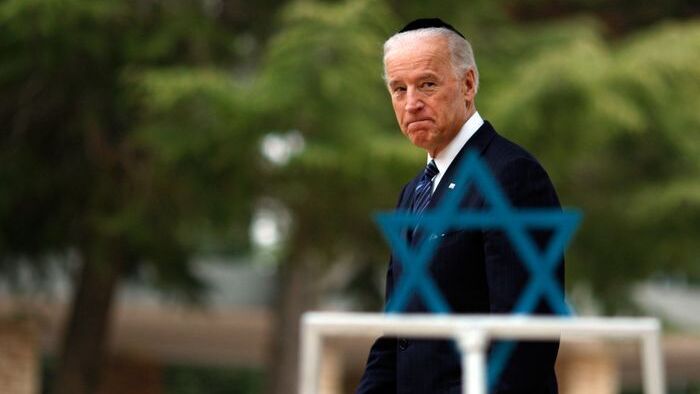Getting your Trinity Audio player ready...
In two weeks time, Americans will pick their next president, choosing between Republican incumbent Donald Trump and former Democratic vice president Joe Biden. They will also cast their votes for one third of the Senate, the entire House of Representatives and thousands of other elected positions.
Very, very carefully calculated predictions show a larger gap between Trump and Biden than the one between the president and Hillary Clinton back in 2016 - and it's purportedly only growing.
3 View gallery


Prime Minister Benjamin Netanyahu and U.S. President Donald Trump at the White House in January
(Photo: EPA)
And while the upcoming second presidential debate may be decisive, unless Biden is a monumental failure, he has a far greater chance of winning on November 3 than Trump.
For Israel, it will mean dramatic shift.
So now is the time for Israel to ask itself whether it is sufficiently prepared for the possibility of a Trump loss or to admit that it has utterly failed to prepare for such an outcome.
Indeed, Trump has been a sympathetic president as far as Israel is concerned, and he may well remain so for another four years. But eventually another president will be elected. Is Israel prepared? Who is in charge of national planning for the next 15-20 years?
Upon close examination, it is clear that Israel has all but abandoned the Democratic Party.
Its close association with Trump, the Republican Party, the evangelicals and their fervent supporters (as witnessed at the absurd inauguration ceremony for the U.S. Embassy in Jerusalem) comes at the expense of similar ties to the Democratic Party and the diverse elements within it, including the academic elite, workers' unions, ethnic minorities and, of course, the American Jewish community.
3 View gallery


Prime Minister Benjamin Netanyahu and former Democratic president Barack Obama at the White House in 2015
(Photo: Reuters)
Israel has put all of its eggs in just one basket. The need for immediate achievements comes at the expense of any sort of long-term vision.
As a country, Israel lacks the capacity to think ahead, and while it is exceptionally good at dealing with the here and now, what can be postponed for later is in fact always be postponed until later.
A gulf has opened between Israel and the largest, most established and influential Jewish community in the world and its requests for Israel to take their needs into account has fallen on deaf ears.
Behind closed doors and and even openly, the leaders of the U.S. Jewish community are pointing to the deviation from a traditional policy of bipartisan support. The Israeli government ignored their concerns.
Israel rebuffed their desire for egalitarian prayer at the Western Wall and ignored their pleas on the issue of Jewish conversion, when the ultra-Orthodox Rabbinate was effectively handed the monopoly over this process, thereby making all conversions outside the Rabbinate null and void in the State of Israel’s eyes.
Israel’s close ties to both Republicans and evangelicals has effectively served to frighten the largely liberal-leaning, multi-denominational American Jewish community away. These are not their values, these are not their beliefs and these are not their publicly elected officials of choice.
3 View gallery


Democratic nominee Joe Biden visiting Mt. Herzl cemetery in Jerusalem during his term as U.S. vice president
(Photo: Getty Images)
The Jewish community is always mostly Democratic in its politics, and this time will be no different. Even so, the community has been the conduit through which Israeli-American relations were conducted, whichever party sat in the White House.
There have always been close associates who knew how to preserve the vital friendship between Israel and both parties, in the White House and in the legislature. It was iron-clad that Israel was a bipartisan issue. That is no longer the case.
Now, on the cusp of a major shift in America, Israel will again fix its eyes on the American Jewish community.
Jerusalem is used to thinking that U.S. Jews would know how to make things right. But at this moment in history, I’m not quite certain.
To borrow from a traditional Hebrew song, Israel may discover that the American Jewish community is indeed a very narrow bridge.
Dr. Nachman Shai is a visiting professor at Duke University in North Carolina and a former member of Knesset for the Labor Party

